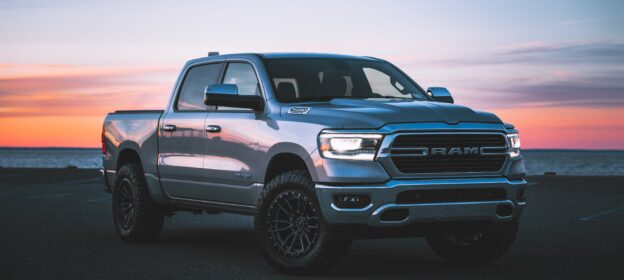
What are the car exhaust laws in Australia?
We’re all after a car that looks great, sounds great and performs at the top of its game, and modifications like a Manta Performance exhaust can give your car that extra bit of oomph that makes all the difference to your driving experience . You don’t want to be driving with an illegal exhaust, and with six states and two territories – all with slightly different rules – Australian laws around emissions and noise can be confusing at best and incomprehensible at worst.
Noise and gas emissions laws
Like most countries around the world, Australia has laws that put restrictions on how cars can be manufactured. Under these laws, legal exhausts must limit noise and gas emissions, and there’s a good reason for this. Prior to emissions laws, heavy smoke from vehicles led to terrible smogs in cities like London and Los Angeles. Environmental concerns met with worry about the liveability of the world’s cities and resulted in laws being written around the globe to limit air pollution from cars.
When it comes to noise limits, plenty of us would love our cars to be as loud as a stadium concert – for others, that noise doesn’t sound so great. Traffic noise is the most pervasive sound in Australian towns and cities, with around one in five people impacted by it. It’s even an offense to start or drive a vehicle in a way that makes unnecessary noise or smoke.
You’re responsible for making sure you’ve got a legal exhaust
Like it or not, noise and gas restrictions are a part of Australian law, and it’s your responsibility as a car owner to make sure that your car is modified within these laws. If you don’t know where to start, don’t worry. We’ve put together some quick links for every state and territory in the country, so you can make sure that the performance exhaust you’re after is legal where you live.
Understanding Australian road laws
Before you dive into your state’s laws, it’s useful to know that they’re all based on the same original document. The model Australian Road Rules is a nationally developed set of guidelines that acts as a template for each state to base their road rules on. These are then slightly edited by each state’s government, and the result becomes the law in that state. That’s why most road rules are the same across Australia, but why each state has small differences. Those differences are why it’s important to understand your state’s rules before making any modifications to your car.
State-specific road laws
Although Manta supplies performance exhaust systems to happy customers all over the world and wider Australia, our Head Office is based in Perth, Western Australia. So we’ve included some more detailed info below for our WA customers, along with handy links for people living in other states across the country further down this blog.
Western Australia (WA)
Emissions: All petrol-powered vehicles with four wheels (or more) built after 1971 must be fitted with equipment that prevents crank case gases from escaping into the atmosphere. Light motor vehicles built after 1930 must not produce ‘excessive visible emissions’ for a period of more than 10 seconds, unless these are water vapour or the result of heat. There are also detailed laws around the fitting of exhaust systems for various types of vehicles.
Noise:
Light motor vehicles must be fitted with a silencing device for gas from the engine to pass through before it leaves the exhaust system. The noise limit for cars built after 1982 is 90dB(A) and 96db(A) for cars built before that time. There are also specific stationary noise level laws that take exhaust heights into account for both petrol and diesel cars.
Exhaust fitting:
The exhaust of any vehicle (except for a bus) must extend at least 40mm beyond the outermost joint of the floorplan if it’s not permanently sealed, or to the edge of the vehicle if the body of the car is permanently enclosed. This means that while diff dump exhausts are legal on most utes and dual cabs, they’re not permitted for SUVs or wagons without trays.
Handy links:
- Road Traffic (Vehicles) Regulations 2014 – Government of Western Australia
- Modify or construct a vehicle – Government of Western Australia
Australian Capital Territory (ACT)
Handy links:
- Road Transport (Vehicle Registration) Regulation 2000 – ACT Government
- Noise Thresholds – Access Canberra
New South Wales (NSW)
Handy links:
- Protection of the Environment Operations (Clean Air) Regulation 2021 – NSW Government
- Motor Vehicle Noise – EPA NSW
- Managing Vehicle Noise – Department of Environment and Conservation (NSW)
Northern Territory (NT)
Handy links:
- Vehicle modifications – Northern Territory Government
- Vehicle standards for registration – Northern Territory Government
Queensland (QLD)
Handy links:
- Transport Operations (Road Use Management) 2010 – Queensland Government
- Vehicle modifications – Queensland Government
South Australia (SA)
Handy links:
Tasmania (TAS)
Handy links:
- Vehicle and Traffic (Vehicle Standards) Regulations 2014 – Tasmanian Government
- Noise Limit Guidelines – Environment Protection Authority Tasmania
Victoria (VIC)
Handy links:
Wherever you are in Australia or around the world, you won’t get better quality than Manta Performance exhaust systems. Remember to check your state’s laws before installing your new system, and feel the difference with a Manta Performance exhaust.
We advise all customers to ensure they are aware of each jurisdictions laws and policies. If you need clarification on any information above, please reach out to your respective state agency.
